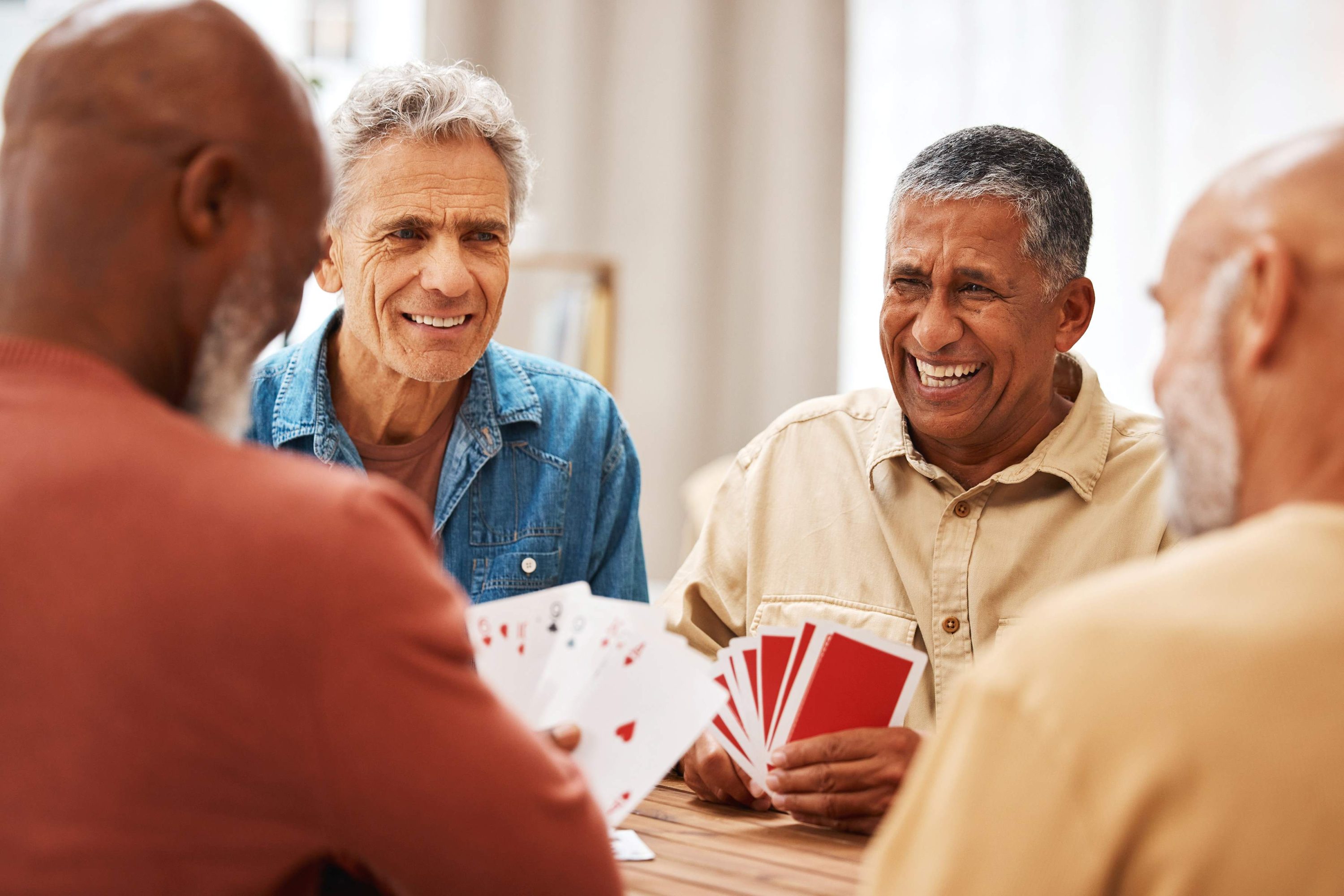
As we get older, we hear a lot about the importance of daily physical exercise and the role it plays in reducing our risk of health conditions such as heart disease and diabetes. However, mental fitness is just as important and can have the same overall affect on our bodies and minds. According to Healthline, mental fitness refers to the overall health of our brain function and emotional wellbeing. Just as we might implement a daily exercise routine to strengthen our physical fitness, experts suggest doing the same with mental exercises. Brain games can help increase focus, concentration, memory, and allow us to be more present in our daily activities. In fact, according to The Advanced Cognitive Training for Independent and Vital Elderly study, consistent brain training improved targeted skills. For example, participants who worked on problem-solving saw improvements in that area, as did those who trained in focus, visual searches and memory.
While there are many different ways to strengthen and train your brain, many older adults find puzzles and games the most fun and effective way to improve overall mental function. In fact, according to a survey conducted by Ipsos, 48 percent of adults enjoy participating in puzzles at least once a year, while one in five adults participate on a monthly, weekly or daily basis. Whether you want to play by yourself or with a group of friends, puzzles and games provide significant benefits to the brain:
Puzzles require participants to look for patterns, tests logic, and allows us to make connections. All of these skills can be translated into real-life scenarios, especially when it comes to decision-making. Working on a puzzle can help us improve our ability to recognize patterns, create meaning, find order and work on strategy.
Working on a puzzle or playing a problem-solving game actually reinforces the connections between our brain cells and helps us form new ones, which can ultimately improve our short-term memory. When we participate in brain games such as sudoku and jigsaw puzzles, we have to remember numbers, shapes, sizes, and pieces and remember where they fit in as a part of a whole. The more we work to grow new brain connections, the more likely we are to reduce brain changes as they relate to Alzheimer’s disease and other forms of dementia.
Puzzles increase the production of dopamine, which is our body’s neurotransmitter that regulates our mood, memory and concentration. Each time we successfully complete a puzzle or solve a particularly challenging part of it, our body releases dopamine, which in turn boosts our mood. Puzzles and other brain games can boost our mood, especially when we play with other people. The experience of working together, laughing and sharing common interests can make us feel more connected with others and reduce feelings of loneliness and isolation.
As we age it’s not uncommon to feel a loss of control and independence, especially if your mobility or cognition declines. Brain exercises can provide a sense of control, especially as individuals begin to see improvement in their overall performance while playing brain games.
It’s never too late to start training your brain and prioritizing your mental fitness! Whether you prefer puzzles or online games, playing alone or with a group, we have some great suggestions on how to get started. Here are a few of the best puzzles and games for older adults, according to Healthline and VeryWell Mind:
Our Maplewood Senior Living communities know that a healthy life requires a healthy mind. Our communities offer daily opportunities and activities centered around mental fitness. From group brain training activities to card games, we’ve got something for everyone. To learn more about our offerings or to schedule a tour, please contact us.
Sign up to receive the latest posts straight to your inbox.
Keep Reading